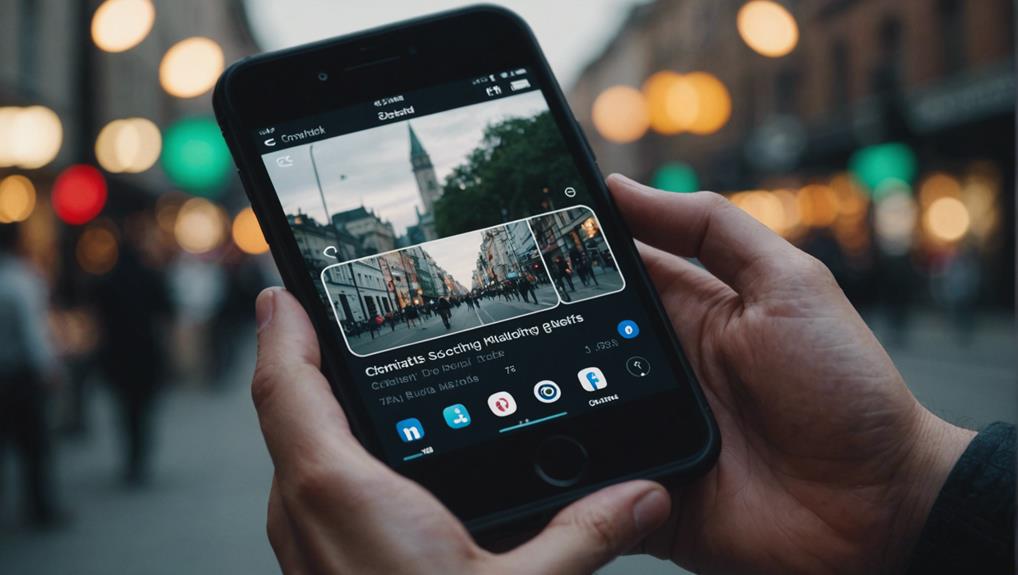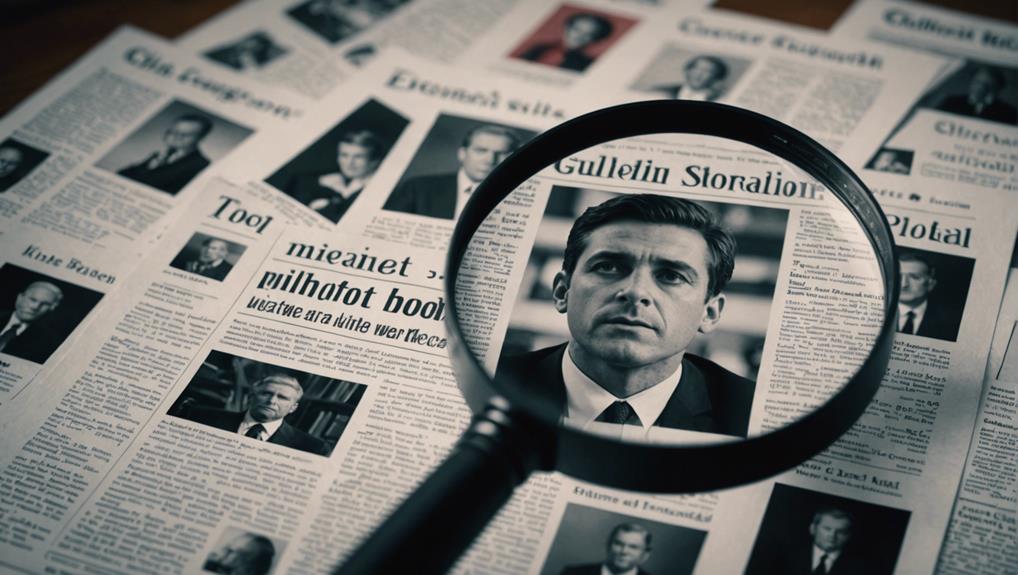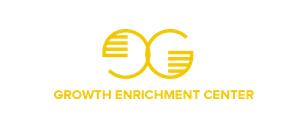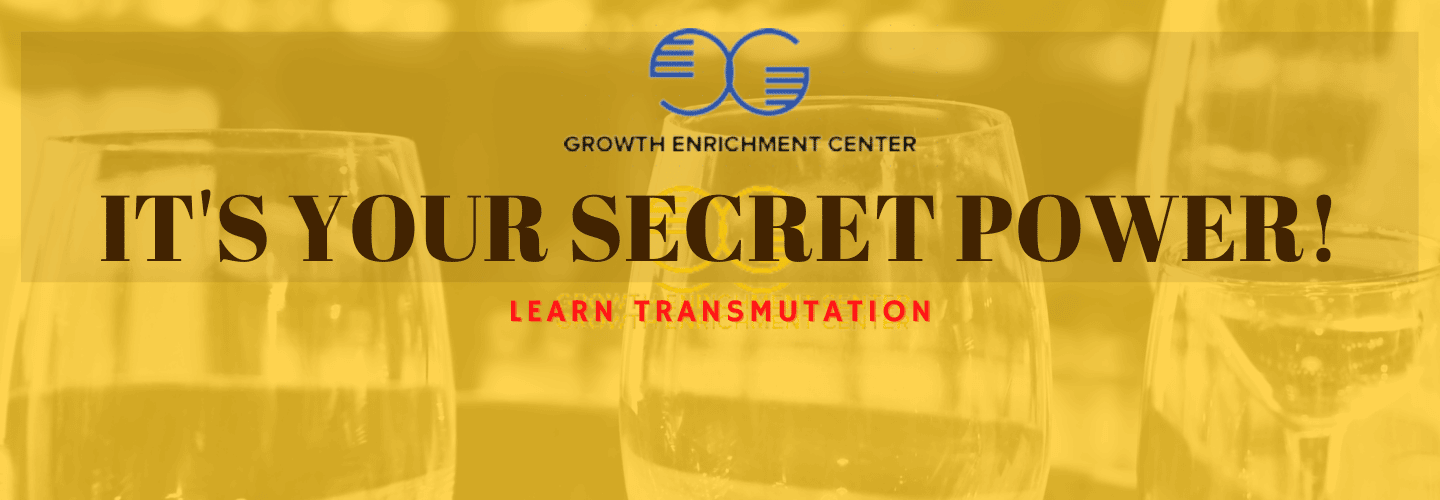
You might be surprised to learn that studies suggest confirmation bias can affect up to 75% of our everyday decision-making. Imagine the impact it could have on your interactions, relationships, and perceptions without you even realizing it. Being aware of this cognitive bias is important, but recognizing it in real-life situations is where the challenge lies. How can you navigate through the maze of biases that cloud your judgment and shape your beliefs? Let's explore practical ways to spot confirmation bias in the everyday scenarios you encounter.
Understanding Confirmation Bias
To truly grasp the concept of confirmation bias, think of it as a mental shortcut that can lead you astray in your quest for objective truth. It's like wearing glasses that only show you what you want to see, blinding you to alternative perspectives. This bias subtly influences how you interpret information, nudging you towards ideas that align with your existing beliefs. It's not about being right or wrong; it's about acknowledging that your mind has a tendency to favor information that confirms what you already think.
Confirmation bias can sneak into your decisions without you even realizing it. It's a product of our brains trying to make sense of the world efficiently, but it can hinder your ability to ponder all sides of an argument. By understanding this cognitive quirk, you can start to challenge your assumptions and embrace a more open-minded approach to information. Remember, being aware of confirmation bias is the first step in overcoming its influence on your thoughts and actions.
Recognizing Biased Information Processing
Recognizing biased information processing is crucial.
Identifying skewed perspectives and noticing selective evidence when combating confirmation bias is vital.
Identifying Skewed Perspectives
Recognizing biased information processing can be challenging, but by actively questioning your perspectives, you can begin to identify skewed viewpoints.
Our minds naturally tend to seek out information that confirms what we already believe, leading to a distorted understanding of reality. To combat this, take a step back and consider the source of information, your own preconceptions, and any potential motivations behind the data presented to you.
Challenge yourself to look at situations from different angles, seeking out diverse opinions and sources. By acknowledging that your perspective may be skewed, you open yourself up to a more nuanced and accurate understanding of the world around you.
Embrace the opportunity to grow beyond confirmation bias and cultivate a more objective outlook.
Noticing Selective Evidence
Noticing patterns of selective evidence in your information processing can empower you to break free from biased perspectives and embrace a more objective outlook.
It's common to cherry-pick facts or examples that support what you already believe, inadvertently ignoring information that contradicts your views.
By becoming aware of this tendency, you can challenge yourself to seek out a broader range of evidence, considering multiple viewpoints before forming conclusions.
Embracing a more inclusive approach to gathering information allows you to make better-informed decisions and develop a deeper understanding of complex issues.
Impact on Decision-Making

When making decisions, it's crucial to be aware of how confirmation bias can influence your thought process and potentially lead you astray. When confirmation bias creeps in, you may unconsciously seek out information that supports your preconceived notions while overlooking contradictory evidence. This skewed perspective can cloud your judgment and hinder your ability to make well-informed decisions.
Confirmation bias can impact decision-making in various aspects of your life, from personal choices to professional matters. It can prevent you from considering alternative viewpoints, exploring new possibilities, or weighing all the facts objectively. By embracing the importance of being open-minded, you risk missing out on valuable insights and making decisions based on flawed reasoning.
To combat the influence of confirmation bias on your decision-making, foster a mindset of openness and critical thinking. Challenge your assumptions, actively seek out diverse perspectives, and strive to evaluate information impartially. By recognizing and addressing confirmation bias, you can enhance the quality of your decisions and navigate through life with greater clarity and wisdom.
Social Media Echo Chambers
To break free from social media echo chambers, actively engage with diverse perspectives that challenge your beliefs and broaden your understanding of the world. It's easy to get caught up in the cycle of only consuming information that aligns with your existing views, but making a conscious effort to seek out differing opinions can lead to personal growth and a more nuanced perspective.
Here are three ways to combat the echo chamber effect:
- Follow a Variety of Sources: Expand your social media feed to include accounts and pages that represent a range of viewpoints. This exposure to diverse opinions can help you break out of the echo chamber and see issues from multiple angles.
- Participate in Civil Discussions: Engage respectfully with individuals who hold different opinions. By having open conversations, you can gain insights into alternative perspectives and foster a culture of understanding.
- Fact-Check Information: Before sharing or believing information, verify its credibility from multiple reputable sources. This practice can help you avoid spreading misinformation and encourage critical thinking.
Overcoming Confirmation Bias

Embracing a mindset of curiosity and openness is key to overcoming confirmation bias.
Challenge yourself to seek out diverse perspectives and actively engage with viewpoints that differ from your own.
Recognizing Biased Thinking
Recognize that biased thinking can hinder your ability to see the full picture and make informed decisions. Acknowledge when your thoughts might be clouded by biases.
Here are three key points that can help you identify biased thinking:
- Stay Open-Minded: Be willing to explore alternative viewpoints, even if they challenge your beliefs.
- Question Your Assumptions: Reflect on why you hold certain beliefs and whether they're based on facts or emotions.
- Seek Feedback: Invite others to provide feedback on your thoughts and decisions to gain different perspectives.
Seeking Diverse Perspectives
Seeking diverse perspectives allows you to break free from the constraints of confirmation bias and enrich your decision-making process.
When you actively seek out different viewpoints, you open yourself up to a world of new ideas and possibilities. Engaging with individuals who've varying backgrounds, experiences, and beliefs can challenge your assumptions and help you see situations from multiple angles.
This practice not only broadens your understanding but also fosters creativity and innovation. By surrounding yourself with diverse perspectives, you cultivate a more inclusive and well-rounded approach to problem-solving.
Embrace the opportunity to learn from others, appreciate differing opinions, and watch how your decisions become more robust and insightful.
The Importance of Critical Thinking
Developing a sharp sense of discernment is key to maneuvering through the complexities of the modern world and avoiding the pitfalls of misinformation and bias. Critical thinking empowers you to navigate a sea of information with confidence and clarity. Here are three compelling reasons why honing your critical thinking skills is essential:
- Enhanced Decision-Making: By critically evaluating information and considering various perspectives, you make more informed decisions that align with your values and goals.
- Improved Problem-Solving: Critical thinking equips you with the ability to analyze situations objectively, identify root causes, and devise effective solutions.
- Resilience Against Manipulation: With a critical mindset, you become less susceptible to fallacies, misleading arguments, and manipulation tactics, enabling you to protect yourself from being swayed by biased or false information.
Frequently Asked Questions
How Can Confirmation Bias Affect Personal Relationships?
In personal relationships, confirmation bias can lead you to only see what confirms your preconceived notions about someone, causing misunderstandings and conflict. Stay open-minded, actively listen, and challenge your assumptions to foster healthier connections.
What Role Does Culture Play in Confirmation Bias?
Culture profoundly influences confirmation bias. Your beliefs, values, and societal norms shape how you interpret information. Embrace diverse perspectives to challenge biases ingrained by culture. Stay open-minded and seek understanding beyond your cultural lens.
Is Confirmation Bias Linked to Cognitive Dissonance?
Yes, confirmation bias is closely linked to cognitive dissonance. When your beliefs clash with new information, you may unconsciously seek out confirming evidence to reduce the discomfort. Be open to challenging your assumptions.
Can Confirmation Bias Be Beneficial in Any Way?
Yes, confirmation bias can be beneficial in some situations. It helps you make quick decisions based on existing beliefs. However, be cautious as it may lead to overlooking significant information. Embrace open-mindedness to balance your perspectives effectively.
Are There Specific Professions More Prone to Confirmation Bias?
In some professions, such as law enforcement, medicine, and investing, there is a higher risk of confirmation bias due to complex decision-making and high stakes. Recognizing this tendency can help you make more objective choices.
Conclusion
You've taken a step towards understanding confirmation bias in everyday scenarios. By recognizing biased information processing and its impact on decision-making, you're empowering yourself to overcome this cognitive trap.
Remember, critical thinking is key. So, next time you encounter conflicting viewpoints, ask yourself: 'Am I truly open to new perspectives?' Keep questioning, keep growing. Your journey to combat confirmation bias starts now.

